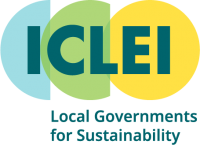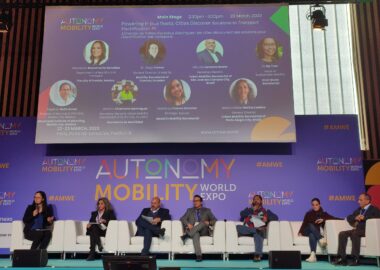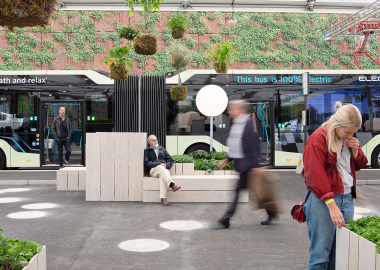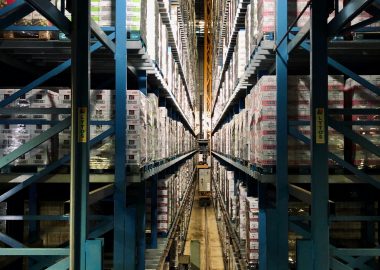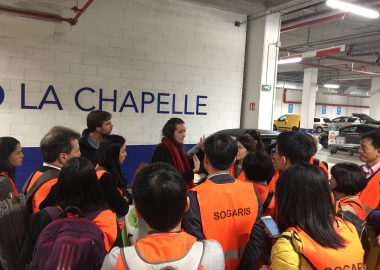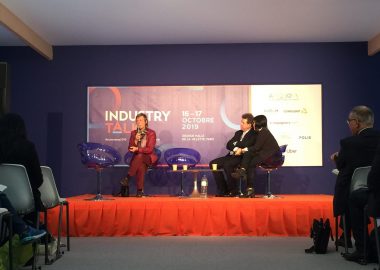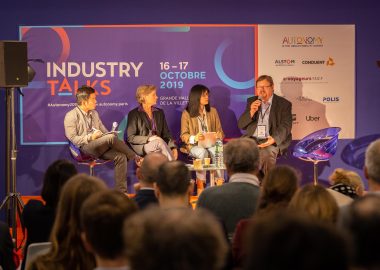
Program
may, 2021
Wednesday, 19th of May, 14:10 – 14:50 CET
Description
Urban freight generates a great share of congestion, pollution, safety issues and other negative externalities. To conserve road space and reduce pollution levels, cities are regulating movement of freight vehicles in the inner-city area. At the same time, the COVID-19 pandemic has accelerated the rise of e-commerce and online shopping, changing consumer behavior, and influencing the “high frequency-less volume” for goods. As these trends continue to progress, last-mile deliveries will continue to be a challenge for both the public and private sectors. Innovation and strengthened public-private partnerships will be essential in reimagining the future of last-mile deliveries post pandemic. As such, ICLEI’s EcoLogistics initiatives are exploring innovative solutions to tackle the last-mile problem and to decarbonize the freight sector.
The session provided an overview of how cities are managing the increase in urban deliveries and present on emerging solutions to meet the demand for last-mile deliveries spurred by e-commerce.
Agenda
Welcome and introduction by the moderator Yiqian Zhang, Sustainable Mobility Officer, ICLEI World Secretariat (5 mins)
Daxi EcoLogistics Project (Video), Taoyuan City (2 mins) – Learn more
Presentation by Dr. Christopher Mejia-Argueta, Director, MIT Food and Retail Operations Lab and Director, MIT SCALE network for Latin America and the Caribbean (5 mins) – Presentation
Presentation by Camilo Urbano, Urban Planning Leader, Despacio (5 mins) – Presentation
Presentation by María Cantore, Environmental Undersecretary of the Municipality of Rosario (5 mins) – Presentation
Panel discussion and Q&A from the audience (20 mins)
Thursday, 20th of May, 11:50 – 12:30 CET
Description
As e-buses are becoming more commercially viable, they are emerging as a viable option for cities to reduce their transport emissions, improve their energy efficiency and security and improve passenger comfort by reducing noise pollution. However, e-buses still present technological, financial, and institutional barriers. One of the main challenges in most cities is building a reliable, stable, and sustainable grid and charging infrastructure. With the difficulties of building such infrastructure comes the need of large financial investments for redesigning streets to incorporate the necessary infrastructure, as well as, for policies enabling the renewal of the current formal and informal bus fleet.
This session focused on how local authorities have started to adopt e-buses. Aside from exploring the challenges and opportunities of this technology, the panelists shared insights on how e-buses are part of their sustainable mobility system.
Agenda
Welcome and introduction by the moderator Tu My Tran, Head of Sustainable Mobility, ICLEI World Secretariat (5 mins)
Presentation by Bhushan Tuladhar, Board Member at Sajha Yatayat, Kathmandu (5 mins) – Presentation
Presentation by Mats Rosenquist, Public Partnerships, Volvo Group (5 mins) – Presentation
Presentation by Çağlar Tukel, Izmir Metropolitan Municipality, Turkey (5 mins) – Presentation
Panel discussion and Q&A from the audience (20 mins)
Thursday, 20th of May, 14:10 – 14:50 CET
Description
Numerous data from the private and the public sector have indicated a gender gap in active mobility with only about one-third of women commuting by active modes such as cycling. However, the COVID-19 pandemic has pushed more women into cycling. Since the start of the pandemic, cities across the globe have seen a surge in active mobility with bike surge as most prevalent. In response, cities are implementing and promoting initiatives that are taking street space back from cars, encouraging active transportation and thus accommodating for the increase in bike ridership. As planners and policymakers are rediscovering street space as public spaces, gender equity should play a center role to retain the positive momentum of women in cycling. Equally important is for the public and the private sector to work together to understand and address the barriers preventing women from partaking in cycling.
This session identified the barriers and solutions in redesigning and recreating gender-inclusive public space. Panelists discussed strategies, policies, and infrastructural changes in encouraging more women to cycle and examples of effective implemented pilots were shared.
Agenda
Welcome and introduction by the moderator Ms. Sina Zhen, Sustainable Mobility Junior Officer, ICLEI World Secretariat (5 mins)
Presentation by Ms. Sonal Shah, Executive Director, Centre of Sustainable and Equitable Cities and Founder, The Urban Catalysts (5 mins)
Presentation by Mr. Emmanuel John, Director, Africa Sustainable Urban Mobility Course and Open Streets Abuja (5 mins) – Presentation
Presentation by Ms. Mirjam Borsboom, Strategic Advisor of Cycling Infrastructure, Data and Innovation at the Dutch Ministry of Infrastructure and Water Management (5 mins) – Presentation
Panel discussion and Q&A from the audience (20 minutes)
Partners
ICLEI – Local Governments for Sustainability is a global network of more than 2500 local and regional governments committed to sustainable urban development. Active in 125+ countries, we influence sustainability policy and drive local action for low emission, nature-based, equitable, resilient and circular development. Our Members and team of experts work together through peer exchange, partnerships and capacity building to create systemic change for urban sustainability.
Updates


